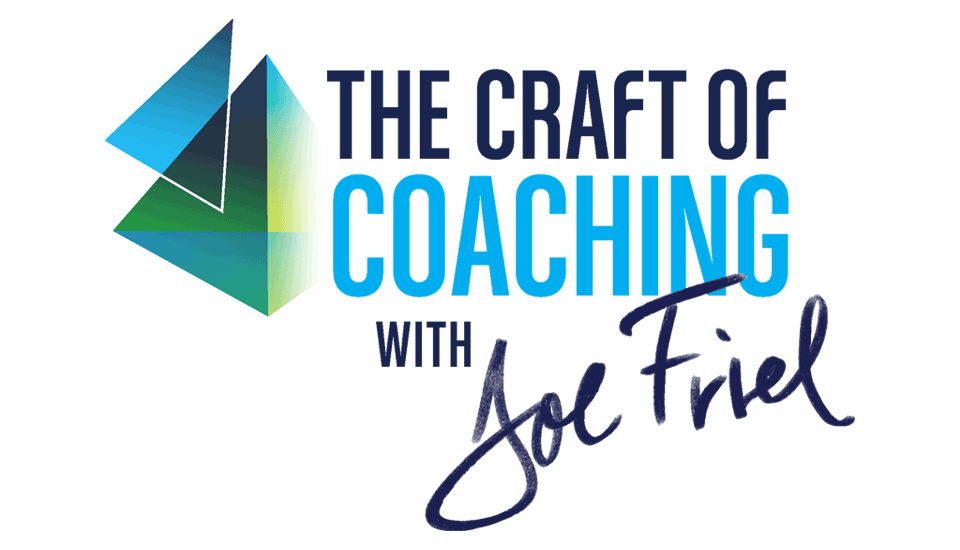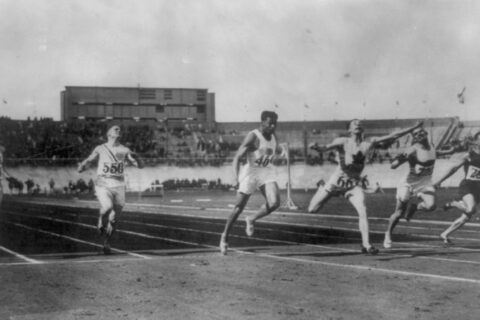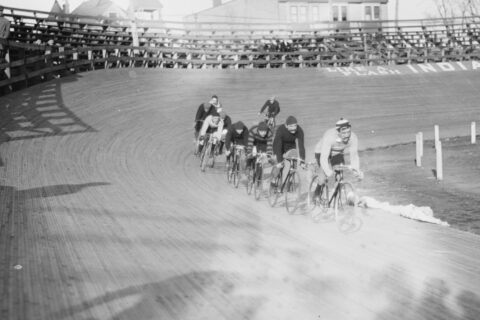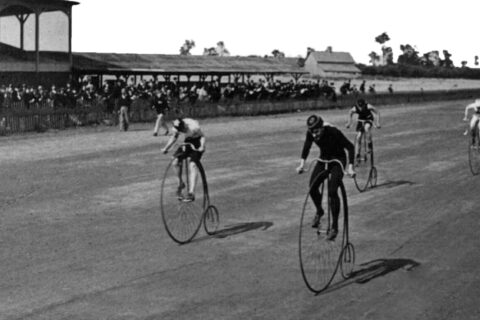Elite athletes often talk about the importance of knowing themselves. “When you don’t understand your body, you really run into trouble,” said veteran Tour de France rider Svein Tuft. “For myself, it’s more about understanding where I’m at.” Elite athletes have an intimate sense or feel for their own physiology—how they respond to training, when they’re feeling off, and exactly how their bodies should react to a particular workout.
However, in this golden age of rapid communication and deep data analysis, some coaches view this “sense of feel” as an antiquated training notion. After all, don’t their hundreds of charts supersede any unquantifiable sensation?
To the contrary, I have witnessed firsthand the pivotal role of self-awareness in athlete progression. Several years ago, I was doing intervals on a climb with two-time Xterra world champion Melanie McQuaid. During one of our recoveries, she looked at me and proclaimed: “Trevor, I suck.” For weeks, she had been getting the work done, but it just hadn’t felt right.
McQuaid worked with a Canadian National Center coach and she could have trusted that if there was an issue, he would have seen it in the data. But he wasn’t out on the rides and couldn’t feel what she felt. She went home and decided to rework her plan, pushing the start of her race season back so she could train more. That year, she won her third Worlds, but it was her self-knowledge, not a chart, that kept her on course.
Self-awareness helps an athlete stay on course
There are three benefits a coach can expect from an athlete who knows themself. First, it is critical to executing a viable path. I often think of pursuing season goals like trying to get to a destination on a map. It’s a journey with many twists and turns and unexpected challenges requiring constant adjustment, but if an athlete doesn’t know where they are, they will never reach their destination.
This may require facing unpleasant truths. If Miami is your destination, realizing that you’re in Portland, Oregon, is no fun, but convince yourself that you’re in Atlanta and all bets are off. Knowing where you are and knowing yourself go hand-in-hand. Both are necessary to stay on course and to set realistic goals.
Second, athletes have to make thousands of in-the-moment decisions when the data isn’t obvious and their coach is not there. If their first interval wasn’t great, should they push through at a lower power/pace or go home? If their heart rate was a little high at the start of the ride, were they getting sick, fatigued, or just a little dehydrated?
I have heard many top pros say that those momentary decisions can be more important than the best laid training plans and they require intimate self-knowledge. “I’m a believer that all that stuff is bull s**t and you should learn your body,” said ex-pro Phil Gaimon. He sees data and training plans like predicting the weather—you never truly know what’s going to happen until you get there.
Self-awareness builds intrinsic motivation
The final reason why an athlete needs to know themselves is less obvious but possibly the most important: knowing themselves helps motivation. A popular theory of motivation is the self-determination theory formulated by Ryan and Deci. [1–3] The theory states that humans have three basic needs: autonomy, competence, and relatedness. When these needs aren’t satisfied, an individual is at risk of losing motivation, particularly intrinsic, or internal, motivation.
Autonomy is when an athlete has a sense of control over their destiny, while competence is a belief in their own ability to master their sport or a particular skill. In both cases, it is very difficult for an athlete who doesn’t know themself to have that sense of control or belief in their ability.
Relatedness is a sense of connection with others. This is something that athletes can experience through teammates, family, and training partners, but ultimately, the coach-athlete relationship has a powerful impact on the athlete’s motivation.
How “do as I say” coaching impacts motivation
The best coaches tend to be guides, intrinsically motivating their athletes by actively involving them in the decision process to give them some autonomy and a sense of competence. [4]
There are times when an autocratic coaching approach can serve as a powerful extrinsic motivator triggering the athlete’s response to the demand for results or capitalizing on an ingrained fear of authority. The biggest danger of a constant autocratic approach is that it does not involve the athletes in the coaching process, causing the athlete to become passive, anxious, and less inclined to engage in their own learning. [5]
The autocratic approach ultimately strips an athlete of their sense of autonomy, and even their competence might suffer if the coach uses too much criticism or negative reinforcement. It can also harm relatedness—athletes want to connect with their coaches and there is little to no connection with coaches who only communicate one way. [6,7]
Under an autocratic coach, an athlete may never develop that all-important intrinsic motivation and they are less likely to gain self-awareness and knowledge. [4]
How you can help athletes get to know themselves
There are many ways to involve an athlete in the coaching process and help them learn themselves while ensuring the athlete stays on course. Here’s just a few:
Let the athlete map out their week
Involving the athlete in the planning process gives them some autonomy and builds their sense of competence. Each Sunday, I give my athletes their target workouts for the week, but I let them map out the days. My athletes appreciate this because it allows them to factor in their lives outside of training and it gives them the power to adjust as the week progresses.
More importantly, it gives me the opportunity to discuss with them each week why they made the choices they did, and to encourage further critical thinking. I can give pointers that help them learn and make better choices in the future.
Give them opportunities to fail
Athletes often learn more from their failures than from their successes. The trick is making sure these “learning opportunities” aren’t happening at critical points in the season or key events. Give them space to fail at a small local race or in workouts so that they can learn from their mistakes with little impact.
More importantly, give them your full support. Regardless of the outcome, there’s no reason to chastise an athlete. Instead, come to the conversation armed with good guidance and support. Done right, a failure can become a source of motivation. They’ll learn more about themselves and gain a better sense of autonomy and competence. They’ll also feel your commitment, which will increase their sense of relatedness.
Help athletes develop a sense of feel
When athletes rely too much on numbers, it’s usually the case that they have an underdeveloped sense of feel. I’ve been surprised how often relatively new amateurs have a better understanding of normalized power, TSS, CTL, and FTP because it’s in the context of feel. The best athletes know what every workout and effort should feel like and when the feel is “off.”
Help your athletes develop their sense of feel by having them log what the effort felt like and what went well or didn’t go well. Just as importantly, have them do periodic efforts without looking at the numbers—many athletes can ride at threshold by staring at their power or pace, but do they know themselves well enough to do it by feel?
Ask for weekly reports
Every Sunday I ask my athletes to send a weekly report and include several key pieces of information to build self-awareness:
- Assess your training week—was it successful, why or why not?
- Provide an overview of the week
- Did you accomplish the volume goal?
- Did you complete the target workouts?
- How recovered do you feel and is this in line with where you should be?
An effective weekly report is an opportunity for an athlete to step back from the daily grind and assess if they are on course. As a bonus, discussing the report can be a powerful way to help an athlete learn themselves.
References
[1] Deci EL, Eghrari H, Patrick BC, Leone DR. Facilitating Internalization: The Self‐Determination Theory Perspective. J Pers 1994;62:119–42. https://doi.org/10.1111/j.1467-6494.1994.tb00797.x.
[2] Deci EL, Ryan RM. Intrinsic Motivation and Self-Determination in Human Behavior 1985:11–40. https://doi.org/10.1007/978-1-4899-2271-7_2.
[3] Ryan RM, Deci EL. Self-determination theory and the facilitation of intrinsic motivation, social development, and well-being. Am Psychol 2000;55:68–78. https://doi.org/10.1037//0003-066x.55.1.68.
[4] Mageau GA, Vallerand RJ. The coach–athlete relationship: a motivational model. J Sport Sci 2010;21:883–904. https://doi.org/10.1080/0264041031000140374.
[5] Ramis Y, Torregrosa M, Viladrich C, Cruz J. The Effect of Coaches’ Controlling Style on the Competitive Anxiety of Young Athletes. Front Psychol 2017;8:572. https://doi.org/10.3389/fpsyg.2017.00572.
[6] Jowett S, Cockerill IM. Olympic medallists’ perspective of the althlete–coach relationship. Psychol Sport Exerc 2003;4:313–31. https://doi.org/10.1016/s1469-0292(02)00011-0.
[7] REEVE J. Why Teachers Adopt a Controlling Motivating Style Toward Students and How They Can Become More Autonomy Supportive. Educ Psychol 2009;44:159–75. https://doi.org/10.1080/00461520903028990.





